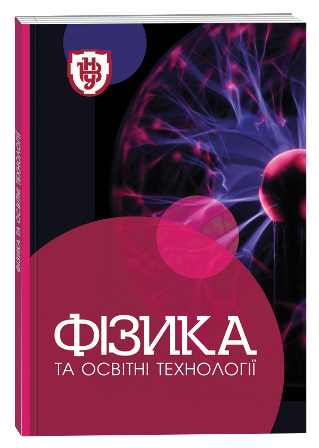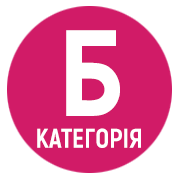DESIGN OF A COMPLEX INTEGRATED COURSE ON THE BASICS OF FUNDAMENTAL AND APPLIED SCIENCES FOR BACHELORS OF TECHNICAL AND TECHNOLOGICAL SPECIALTIES
DOI:
https://doi.org/10.32782/pet-2023-2-3Keywords:
reflection, integration, higher education, choice of profession, cooperation, fundamental, applied disciplines, readiness for choiceAbstract
The problems of the process of technologization faced by the modern education system can be distinguished depending on the angle of view on this issue, on the one hand, the rapid spread of various innovations, especially new pedagogical technologies, and, on the other hand, insufficient knowledge and the level of mastery of them by teachers. Determining the purpose of the learning process as the acquisition of a certain amount of knowledge would not cause doubt when it came to academic education, the acquisition of theoretical knowledge, the formation of a broad scientific outlook and the general culture of a modern specialist. This is especially relevant for a technology teacher in modern conditions that are rapidly changing, when pedagogical higher education institutions have to train such a technology teacher who, in addition to valuable personal qualities, must possess knowledge, abilities and skills of technological activity at an appropriate professional level. Dispersion of the courses of the educational program of the system of training pedagogical staff of technical and technological specialties results in the overloading of curricula and, accordingly, students studying academic disciplines of a non-specialist direction. Yes, they must have training in materials science, the basics of engineering and technology, mastering which at the proper level is possible only if there is an appropriate material and technical base and educational and methodological support. Therefore, the most optimal way out of this situation is the integration of fragmented courses of scientific and subject training of bachelors of secondary and professional education, as well as educational disciplines of the general technical cycle, the study of which creates a starting basis for the technical and technological training of future teachers of vocational training, teachers of labor training and technology. Thus, integration is due to the need for a higher level of the process of systematization of technical knowledge, its consolidation and economy, involves the elimination of duplication in the teaching of educational material of related educational disciplines, as well as the need to strengthen the professional orientation of the technological education system.
References
Андрущенко В.П. Інформаційний вимір сучасної освіти / В. Андрущенко, О. Кивлюк, О. Скубашевська. Київ : «МП Леся», 2017. 956 с.
Бех І.Д. Компетентнісний підхід у сучасній освіті. Педагогіка вищої школи: методологія, теорія. Київ : Генезис, 2009. С. 21–25.
Бодненко Т.В. Професійно-орієнтоване навчання технічних дисциплін майбутніх фахівців комп’ютерних систем : монографія. Черкаси : Вид-во «ІнтерлігаТОР», 2016. 372 с.
Війчук Т.І. Прикладна спрямованість змісту навчання як засіб формування статистичних уявлень учнів. Дидактика математики: проблеми і дослідження. Донецьк : ДонНУ, 2008. Вип. 30. С. 194–199.
Жерноклєєв І.В. Сучасний стан і реформа системи підготовки майбутніх учителів технології та професійного навчання у Швеції. Проблеми трудової і професійної підготовки : науково-методичний збірник. Слов’янськ, 2011. Вип. 16. С. 43–51.
Особливості інтегрованого тестового контролю технічних дисциплін і природничо-математичних дисциплін в середніх професійно-технічних навчальних закладах / А.В. Касперський, Ю.В. Немченко, О.М. Кучменко, О.М. Дейнека. Збірник наукових праць Херсонського державного університету. Педагогічні науки. 2016. Вип. 69(1). С. 157–161.
Корець М.С. Фізико-математична підготовка фахівців технологічної та професійної освіти. Актуальні проблеми методології та методики навчання фізико-математичних дисциплін : Всеукраїнська науково-практична конференція, присвячена 85-річчю від дня народження кандидата фізико-математичних наук, завідувача кафедри методології та методики навчання фізико-математичних дисциплін вищої школи, професора Івана Тихоновича Горбачука. Київ : Вид-во НПУ імені М.П. Драгоманова, 2018. С. 99–100.
Кремінь В.Г., Биков В.Ю. Категорії «простір» і «середовище»: особливості модельного подання та освітнього застосування. Теорія і практика управління соціальними системами. 2013. № 2. С. 3–16.
Марущак О.В. Інтеграція знань з матеріалознавства у професійній підготовці майбутніх фахівців швейного виробництва : дис. … канд. пед. наук : 13.00.04. Вінницький державний педагогічний університет ім. М. Коцюбинського. Вінниця, 2005. 260 с.
Сидоренко В.К. Інтеграція трудового навчання і креслення як засіб розвитку технічних здібностей школярів (дидактичний аспект) : дис. … д-ра пед. наук : 13.00.01. Київ, 1995. 435 с.
Тхоржевський Д.О. Яким має бути зміст освітньої галузі «Технології». Трудова підготовка у закладах освіти. 2000. № 3. С. 7–10.
Шевченко В.В. Роль інформаційних компетенцій та компетентностей у професійній діяльності майбутнього вчителя. Науковий часопис Національного педагогічного університету імені М. П. Драгоманова. Серія № 13. Проблеми трудової та професійної підготовки. Випуск 6 : збірник наукових праць. Київ : Вид-во НПУ імені М.П. Драгоманова, 2010. С. 236–242.








